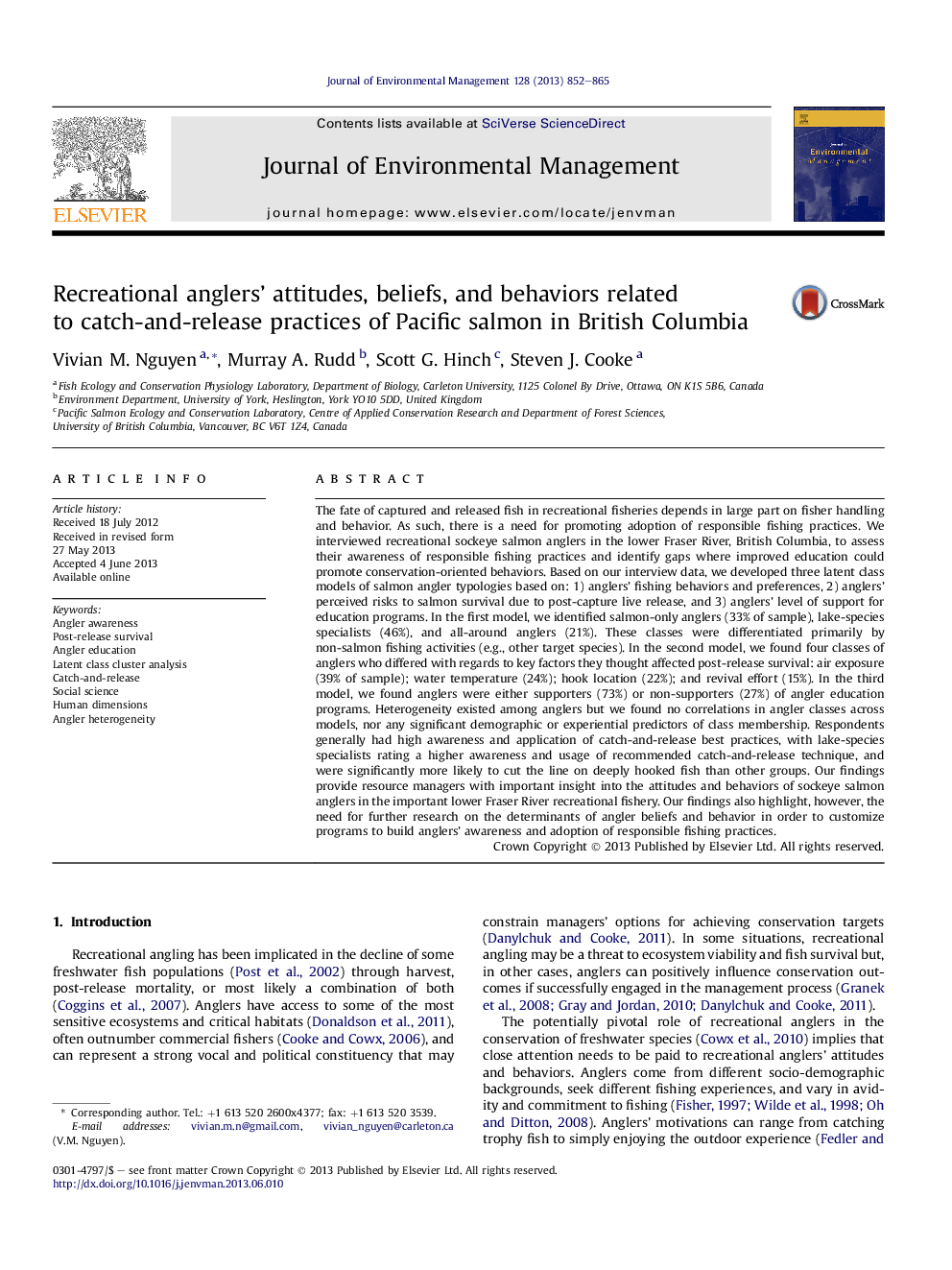| Article ID | Journal | Published Year | Pages | File Type |
|---|---|---|---|---|
| 7484586 | Journal of Environmental Management | 2013 | 14 Pages |
Abstract
The fate of captured and released fish in recreational fisheries depends in large part on fisher handling and behavior. As such, there is a need for promoting adoption of responsible fishing practices. We interviewed recreational sockeye salmon anglers in the lower Fraser River, British Columbia, to assess their awareness of responsible fishing practices and identify gaps where improved education could promote conservation-oriented behaviors. Based on our interview data, we developed three latent class models of salmon angler typologies based on: 1) anglers' fishing behaviors and preferences, 2) anglers' perceived risks to salmon survival due to post-capture live release, and 3) anglers' level of support for education programs. In the first model, we identified salmon-only anglers (33% of sample), lake-species specialists (46%), and all-around anglers (21%). These classes were differentiated primarily by non-salmon fishing activities (e.g., other target species). In the second model, we found four classes of anglers who differed with regards to key factors they thought affected post-release survival: air exposure (39% of sample); water temperature (24%); hook location (22%); and revival effort (15%). In the third model, we found anglers were either supporters (73%) or non-supporters (27%) of angler education programs. Heterogeneity existed among anglers but we found no correlations in angler classes across models, nor any significant demographic or experiential predictors of class membership. Respondents generally had high awareness and application of catch-and-release best practices, with lake-species specialists rating a higher awareness and usage of recommended catch-and-release technique, and were significantly more likely to cut the line on deeply hooked fish than other groups. Our findings provide resource managers with important insight into the attitudes and behaviors of sockeye salmon anglers in the important lower Fraser River recreational fishery. Our findings also highlight, however, the need for further research on the determinants of angler beliefs and behavior in order to customize programs to build anglers' awareness and adoption of responsible fishing practices.
Keywords
Related Topics
Physical Sciences and Engineering
Energy
Renewable Energy, Sustainability and the Environment
Authors
Vivian M. Nguyen, Murray A. Rudd, Scott G. Hinch, Steven J. Cooke,
